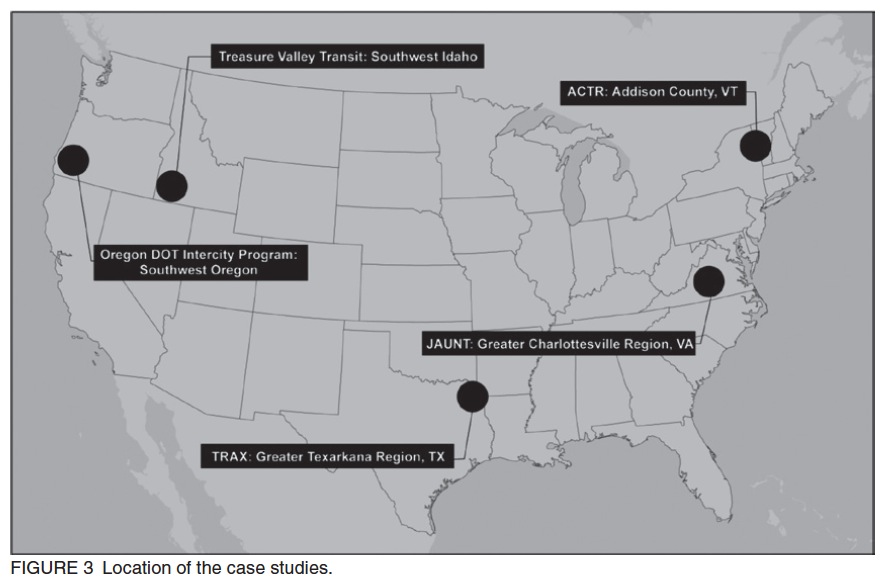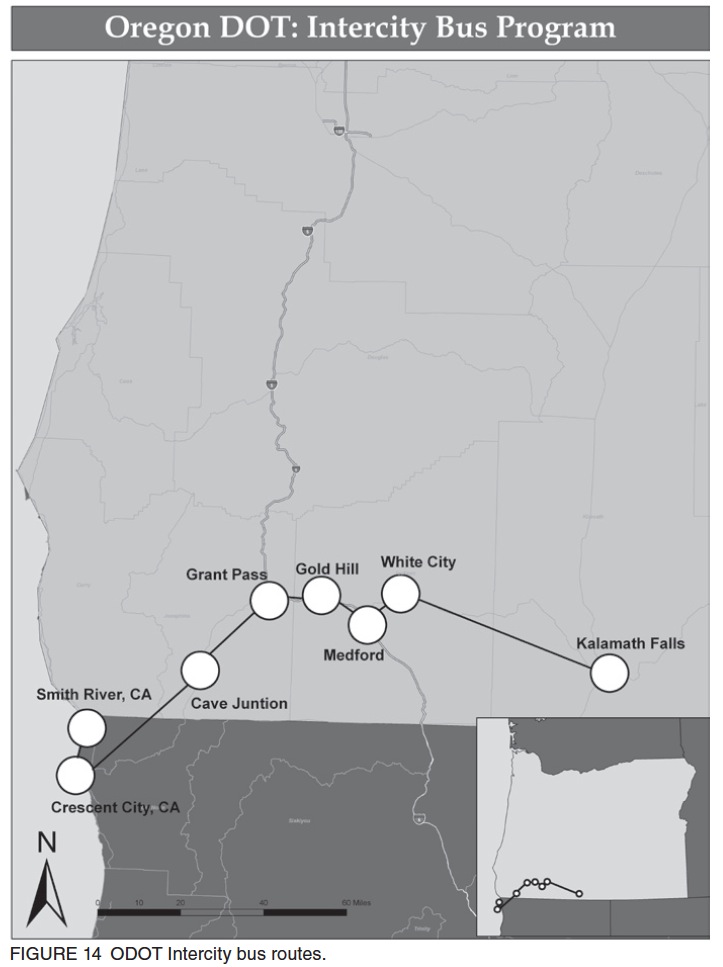TRANSIT COOPERATIVE RESEARCH PROGRAM
Summary
Rural public transit systems and rural intercity bus service face a wide variety of challenges on a daily basis. Complicating this is the unique nature of rural transit—each system has its own dynamics related to geography, quality of service, political issues, service design, cost, and a host of other factors. The unique nature of most rural transit systems requires management to adapt to their specific needs, making innovation important to rural transit.
Rural transit agencies need to change and innovate in order to improve and meet the increasing demands for their service, as their service area often undergoes significant changes. The old saying “necessity is the mother of invention” is more than evident in rural transit. Some transit agencies are not able to make such changes, yet others thrive in this environment, even in a poor economy. The synthesis tells us that the successful systems have certain characteristics related to their willingness and ability to change as needed to improve, innovate, and try something new; the ability to change in itself is innovative.
Considerable thought went into how innovations would be defined and categorized for rural transit. Building on earlier TCRP reports, the synthesis defines innovation as change for a useful purpose, including
- New, different, and unique techniques, practices, or approaches (changes that improve a part of the organization);
- Techniques, practices, or approaches that are newly applied to a rural transit setting, but not necessarily unique; and
- Modification of a practice that has been previously implemented, but with a nuance or twist that makes it different or innovative (TCRP Report 70).
TCRP is conducting this synthesis to focus on transit’s response (including rural intercity bus service) to the changing rural community transportation needs. The synthesis reviews the state-of-the-practice, broadly defined for the report as rural transportation service innovations, with a compilation of possible innovations that have been considered and implemented by rural transit agencies with a focus on innovations in the following six categories:
1. Innovative agency characteristics;
2. Service responses to changing demographics;
3. Involvement in the transportation planning process;
4. Alternative service modes;
5. Outreach, education, and training; and
6. Leveraging funding opportunities.
Download full report (PDF): Innovative Rural Transit Services
About the Transit Cooperative Research Program
www.tcrponline.org
“The Transit Cooperative Research Program is your ticket to information central. Whether you are a service provider, consultant or supplier, TCRP provides the tools you need to innovate and solve problems in the transportation industry. The information you need is easily accessible through print, CDs, and online. And best of all — it’s free through APTA!”
Tags: Federal Transit Administration, TCRP, Transit Cooperative Research Program








 RSS Feed
RSS Feed